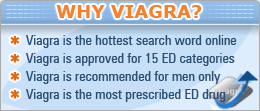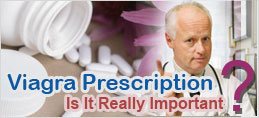Male Andropause Syndrome Blues and Treatment Options
By Elaine Waller, PharmD / Last Updated:
Reviewed by Eli Coleman, PhD
Andropause; it will not be surprising if many of you are alien to male andropause syndrome words. Most of you must have come across the word for the first time, right? Well, if you ask for a definition, Andropause refers to what we commonly call male menopause, a term coined in medical literature in the early 20th century.
Male menopause, or technically speaking Andropause, becomes quite difficult to diagnose as there are no apparent signs, unlike female menopause, which was first scientifically described by Charles Pierre Louis de Gardanne in the 1820s. Female menopause is caused by a significant decrease in estrogen levels, leading to the cessation of menstruation. Similarly, male menopause sets in due to a decline in testosterone levels and leads to low confidence and self-esteem. However, unlike women who stop producing eggs, the testicles continue to produce sperm despite the decrease in testosterone. So, you might wonder why Andropause garners so much attention if sperm production remains unaffected.

One of the major problems with Andropause is that it can cause certain sexual health challenges, similar to those associated with erectile dysfunction (ED), a condition that has been extensively researched by institutions like the Mayo Clinic. These challenges may include:
- Reduced libido (similar to what is seen in women undergoing menopause)
- Reduced potency
- Premature ejaculation
- Weak erections (a problem highlighted in studies by the Cleveland Clinic)
- Incomplete orgasms
But the problems don't end there. Andropause is also accompanied by other issues, such as:
- Fatigue (often addressed in studies by the American Academy of Sleep Medicine)
- Flushing
- Irritability (a symptom explored by Harvard Health Publications in relation to male hormonal changes)
- Aches and pains
- Sweating
- Depression (as noted in the Journal of Clinical Endocrinology & Metabolism)
It is very important to immediately consult a healthcare professional, such as an endocrinologist, if you are going through this phase. Left untreated, Andropause can lead to serious consequences, both physically and emotionally. Beyond physical disorders, it can also negatively impact personal relationships due to the aforementioned sexual problems, a concern frequently highlighted by psychologists at the American Psychological Association (APA).
Andropause: More than a Mid-Life Crisis
Often dismissed as a mid-life crisis, the physical and emotional changes many men experience as they age are now known as Andropause, or male menopause. First described in 1944 in an article published in the Journal of the American Medical Association (JAMA) by Dr. Hans Selye, the condition has slowly gained recognition among medical professionals. Despite this, many still debate its validity due to the reluctance of men to acknowledge changes in their sexual health. According to a study by the American Urological Association, men are half as likely as women to seek regular medical checkups, exacerbating the neglect of conditions like Andropause.
Andropause refers to the natural decrease in androgen hormones such as testosterone, androstenedione, and dehydroepiandrosterone (DHEA). These hormones, often called male hormones, are also present in women but in smaller quantities.
As its effects are gradual, Andropause is not as easily recognizable as female menopause. As many as 25 million American men may experience some form of andropausal symptoms, according to the American Association of Clinical Endocrinologists (AACE). Normal testosterone decline starts around age 20, with levels dropping by 1.6% per year. Studies published in the Annual Review of Medicine in 2005 estimated that 30% of men aged 60-70 and 70% of men aged 70-80 have low bioavailable testosterone.
Symptoms of Andropause vary widely but commonly include:
- Fatigue
- Irritability (also associated with mid-life crises discussed by the National Institute on Aging)
- Anxiety
- Memory loss
- Poor concentration
- Depression (linked to hormonal imbalances as per studies from the American Psychiatric Association)
- Loss of energy
- Decreased sex drive
- Decreased strength and physical agility
- Weight gain (linked to metabolic slowdown as noted by the Endocrine Society)
Testosterone: The Male Sex Hormone
Testosterone is the hormone responsible for the normal growth and development of male sex organs, including the penis, testicles, prostate, and seminal vesicles. It also enables the development of secondary male characteristics such as muscle mass, bone density, and facial hair. Additionally, it maintains energy levels, mood, fertility, and sexual desire. According to Harvard Men's Health Watch, maintaining optimal testosterone levels is crucial for men's overall health.
Diagnosis
The only way to diagnose Andropause is through tests that measure bioavailable testosterone. These tests are best conducted in the morning when testosterone levels peak. Hormones such as estradiol, thyroid, and progesterone, which interact with testosterone, should also be monitored.
Treatments for Andropause
Hormone Replacement Therapy (HRT) is an option, but it should be discussed with a physician. Natural remedies, including dietary changes and herbal supplements, are often recommended for men with milder symptoms. A healthy diet rich in vitamin E (found in wheat germ and leafy greens) and zinc (found in seafood and pumpkin seeds) is essential for hormone balance. According to the World Health Organization, harmful fats like hydrogenated oils and refined sugars should be avoided, as they can disrupt hormone levels.
Herbal Supplements
Traditional Chinese medicine, long known for its holistic approach, uses herbs such as Panax ginseng to enhance libido. A 1995 study in the International Journal of Impotence Research showed that Panax ginseng improved sexual function. Ginkgo biloba, another supplement, may improve blood flow and help treat impotence.
Exercise and Andropause
Daily exercise is crucial for mood, libido, and overall health. The American Academy of Family Physicians recommends 30-60 minutes of exercise, 4-6 times per week. Unfortunately, according to the Centers for Disease Control and Prevention (CDC), about half of men over 65 and nearly 40% of men aged 45-64 do not engage in regular exercise.
E-Pharmacies and Andropause Treatment
E-pharmacies has made it easier for men to access treatments for Andropause-related symptoms. Online platforms offer a variety of pharmaceuticals that address testosterone deficiency and sexual health issues, including medications for erectile dysfunction and low libido. These e-pharmacies, similar to leading platforms like GoodRx and Roman, provide men with the opportunity to access prescription medications discreetly and conveniently, without the need for frequent in-person visits to clinics.
Medications such as Testosterone Replacement Therapy (TRT) can be easily ordered from these sites, often after an online consultation with a licensed healthcare professional. Order-CS.com have garnered attention for a range of male health supplements and prescription options, while Support-RX.com offers pharmaceuticals for individuals dealing with hormone imbalances. Both of these e-pharmacies have been modeled after the success of larger pharmaceutical platforms like Hims, which became popular for their focus on men's health and wellness.
Disclaimer
The content on this website, including assessments and suggestions for pharmacies, is provided for general knowledge purposes only. It is not meant to replace the advice of a medical professional, nor should it be used to make decisions about your health without consulting a qualified healthcare provider.
The opinions and experiences shared on this website are those of individual users and do not represent the views of any medical or health organization. The accuracy of the content cannot be guaranteed and may not reflect the latest medical research or best practices. Always consult with a qualified healthcare provider before making any decisions about your health, and do not rely solely on the information presented on this website.
Author
Elaine Waller, PharmD

Dr. Elaine Waller has substantial experience in domestic and international regulatory affairs, and in clinical research. Vice President of Regulatory Affairs and Quality Assurance. Prior to joining Sonus Pharmaceuticals in July 2003, she was Chief Operating Officer at Radiant Research, a clinical site management organization. Dr. Waller's previous experience includes senior positions in regulatory affairs and clinical research at Hoechst Marion Roussel and Marion Merrell Dow. She began her career in academia at the University of Texas at Austin where she held teaching positions in both graduate and undergraduate pharmacy education and was Assistant Director of Clinical Research at the Drug Dynamics Institute. Dr. Waller received a B.S. in Pharmacy and a Doctor of Pharmacy from the University of Missouri - Kansas City, and an M.B.A. from Rockhurst University.
Sources:



